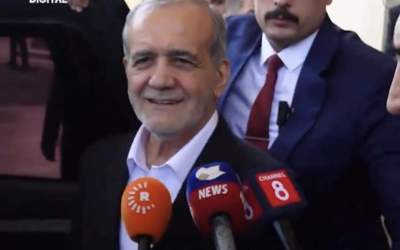 JERUSALEM (AP) -- Continued pressure on Iran over its contested nuclear program can get world powers a better deal, Israel's prime minister said Sunday, ahead of a visit by the French president.
JERUSALEM (AP) -- Continued pressure on Iran over its contested nuclear program can get world powers a better deal, Israel's prime minister said Sunday, ahead of a visit by the French president.Benjamin Netanyahu offered the comments at a government meeting Sunday, hours before President Francois Hollande was to arrive for a three-day trip.
Netanyahu repeatedly has expressed anger over a possible deal between Iran and six world powers - including France - that could ease some sanctions while leaving the Islamic Republic with uranium-enrichment capabilities. He repeatedly has referred to the potential agreement as a "bad deal."
World powers fear Iran could develop a nuclear weapon. Iran says its nuclear program is for peaceful purposes.
Israel views a nuclear-armed Iran as a threat to its very existence, citing Iran's repeated calls for the destruction of the Jewish state, Tehran's long-range missile program and its support for violent anti-Israel groups like the Hezbollah in Lebanon.
Netanyahu said he would discuss the issue with Hollande, as well as when he meets with Russian President Vladimir Putin in Moscow on Wednesday. U.S. Secretary of State John Kerry is scheduled to visit Jerusalem on Friday.
"I hope we will be able to convince our friends this week ... to reach a much better deal, and it's possible to obtain that because Iran is under economic pressure and by the continuation of this pressure - and even by increasing it - can lead to a much better result of a diplomatic solution in peaceful ways," Netanyahu said.
Netanyahu said Iran talks will "top the agenda" in discussions with Hollande that will also cover the ongoing negotiations with the Palestinians. Hollande is to meet Palestinian President Mahmoud Abbas later in the week.
The Israeli prime minister has been petitioning his allies to maintain sanctions on Iran, straining relations with U.S. President Barack Obama. Netanyahu downplayed that strain Sunday, saying that differences of opinion happen even between the "best of friends" and that it is his government's duty to protect its interests.
By The Associated Press
The Iran Project is not responsible for the content of quoted articles.










